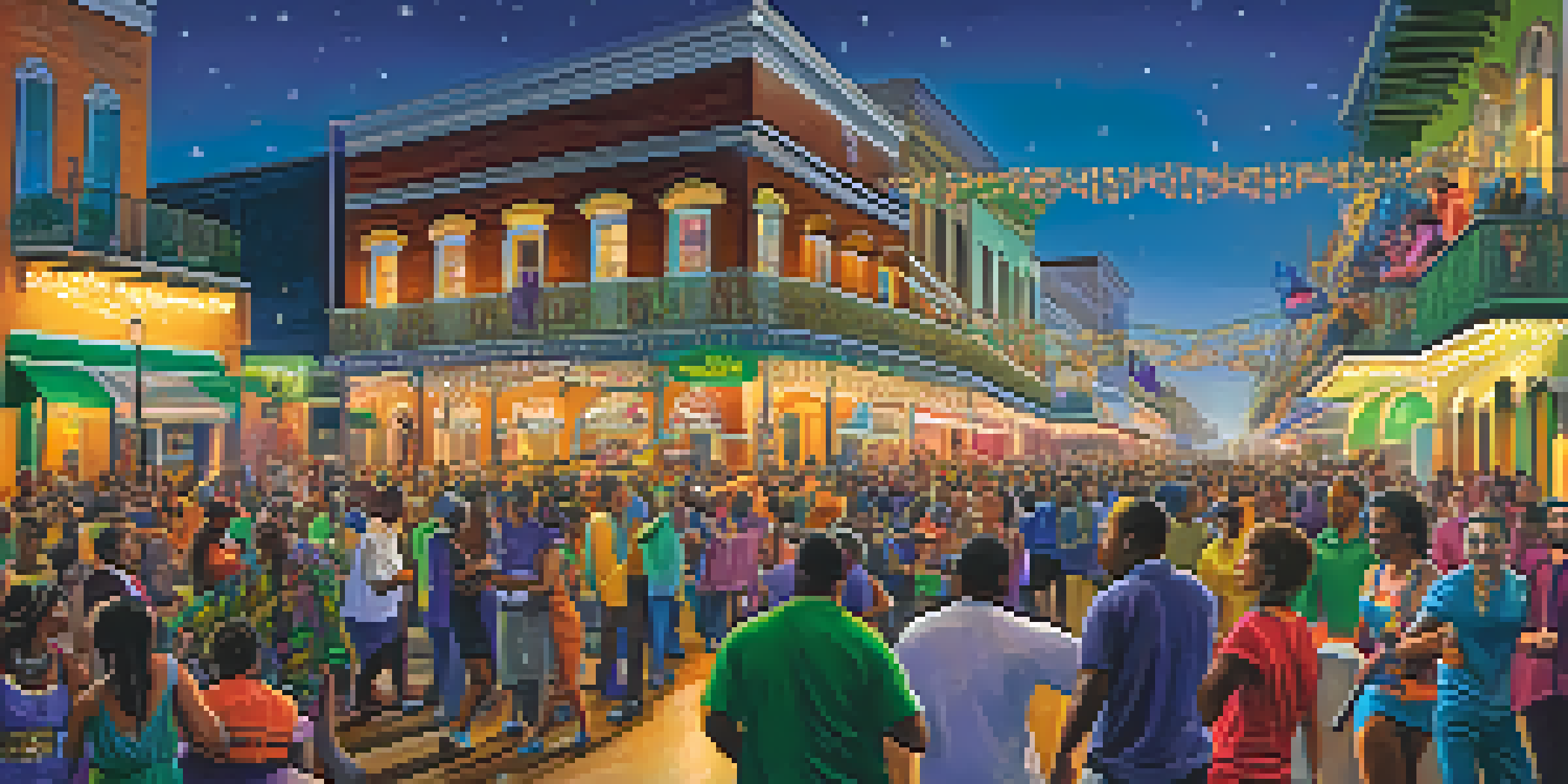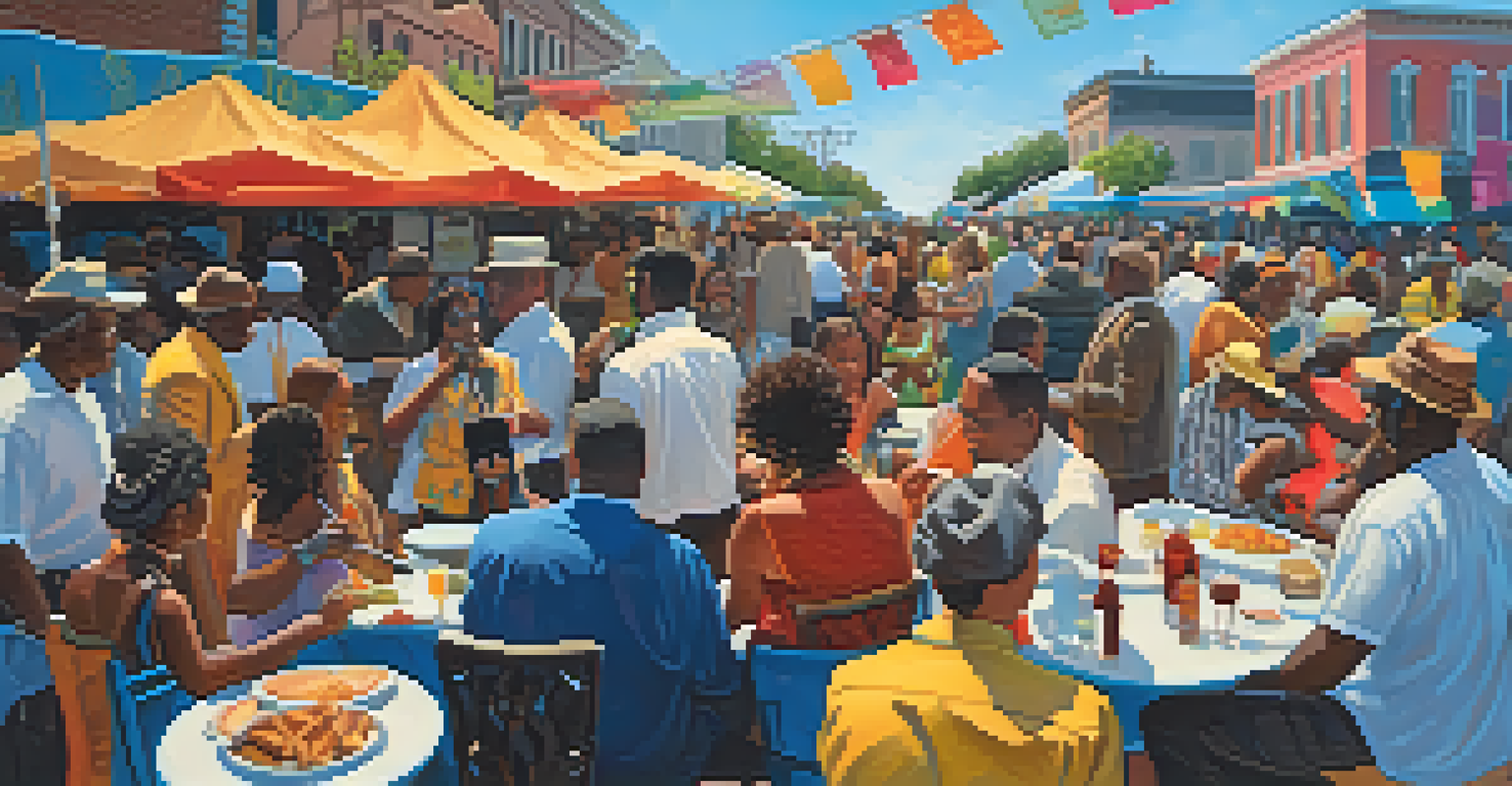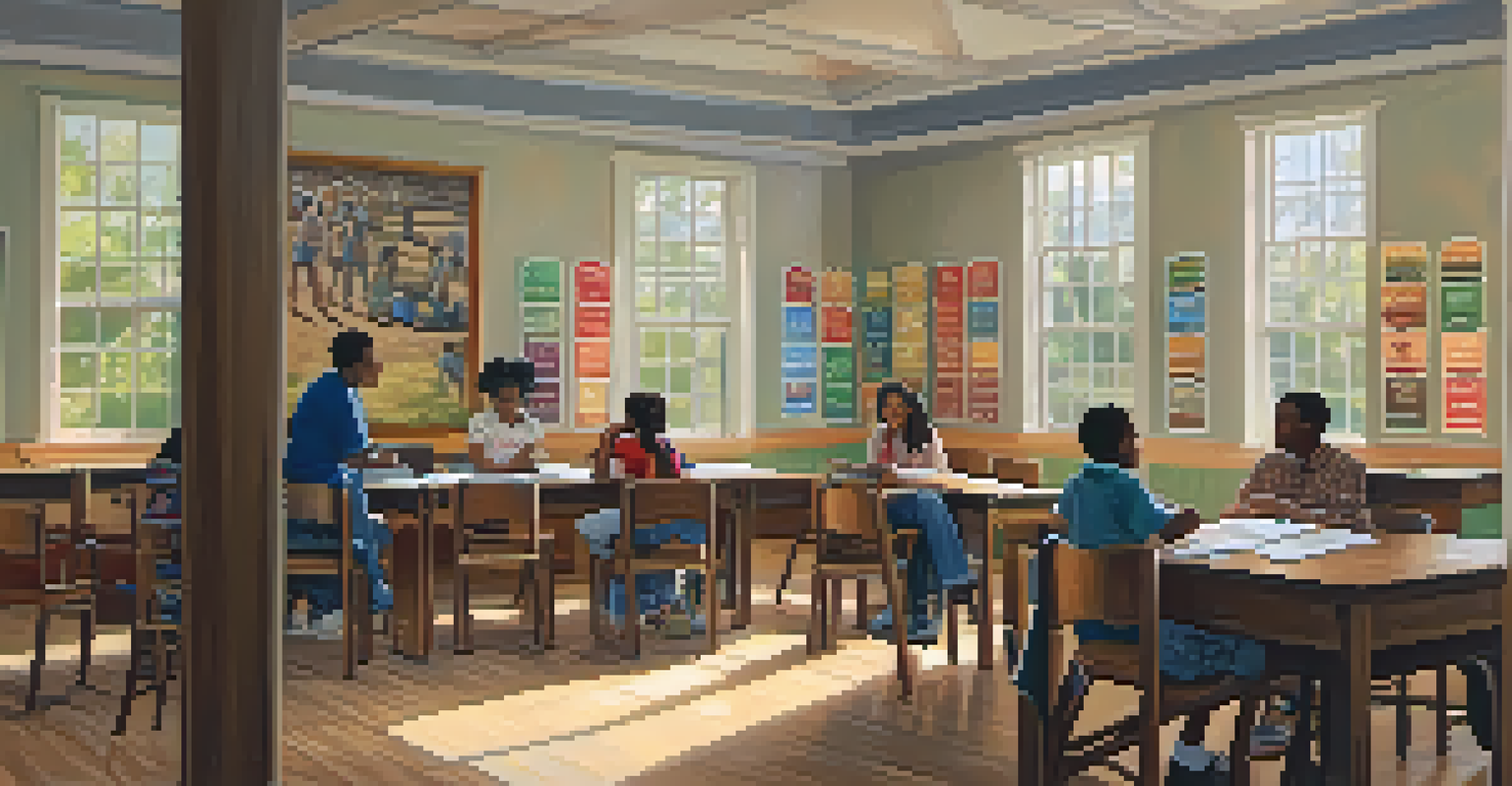The Influence of Culture on Louisiana's Political Landscape

The Vibrant Tapestry of Louisiana's Culture
Louisiana is often described as a cultural melting pot, blending French, Spanish, African, and Native American influences. This rich tapestry of traditions and customs shapes not just daily life but also the political landscape. The unique cultural identity fosters strong community bonds, which can profoundly affect voter behavior and political engagement.
Culture is the widening of the mind and of the spirit.
For instance, during Mardi Gras, the sense of community and collective identity peaks, encouraging political discussions and activism. The cultural celebrations create an environment where political leaders often engage with constituents, thus bridging the gap between politics and everyday life. This cultural vibrancy ensures that politics in Louisiana is never too far removed from its people's hearts and minds.
Moreover, this rich cultural background influences the types of policies that gain traction. Politicians who embrace and celebrate Louisiana’s heritage often find greater support, making culture a pivotal player in political campaigns and governance.
Historical Context: Politics and Culture Intertwined
The historical context of Louisiana provides valuable insight into the current political scene. From its colonial past to the Civil Rights Movement, each chapter of history has left a mark on the state’s political fabric. Understanding this history helps to explain contemporary political affiliations and sentiments prevalent among different cultural groups.

For instance, the legacy of plantation economy and slavery continues to influence discussions around race and socioeconomic status, shaping voting patterns and party alignments. This historical backdrop creates a complex interplay between cultural identity and political allegiance, often leading to deeply rooted divisions or alliances.
Cultural Identity Shapes Politics
Louisiana's rich cultural heritage influences voter behavior and political engagement, especially during cultural celebrations like Mardi Gras.
Thus, to fully grasp Louisiana's political landscape, one must consider how historical events have shaped cultural perspectives and, in turn, influenced political decisions. This reciprocal relationship highlights the importance of historical awareness in contemporary politics.
Cultural Festivals: A Platform for Political Discourse
Cultural festivals in Louisiana, such as Jazz Fest and Bayou Country Superfest, serve as vibrant platforms for political discourse. These events gather diverse groups of people, creating an informal space for discussions about pressing political issues. Politicians often seize these opportunities to connect with voters, share their platforms, and listen to community concerns.
A nation’s greatness is measured by how it treats its weakest members.
During these festivals, the atmosphere is festive, yet the conversations can be serious, highlighting how culture influences the political narrative. For example, environmental issues related to the Louisiana coastline often emerge in discussions during these events, reflecting the community's connection to the land and its preservation.
In this way, cultural festivals not only celebrate Louisiana’s heritage but also act as a catalyst for civic engagement. They remind us that politics can be woven into the very fabric of cultural expression.
Language and Dialect: A Political Tool
Language plays a pivotal role in Louisiana's culture and serves as a political tool. With a rich history of Cajun and Creole dialects, the state's linguistic diversity reflects its unique cultural identity. Politicians who recognize and embrace this diversity often resonate more deeply with voters, fostering a sense of belonging.
For example, when leaders use Louisiana's dialects in speeches or campaigns, it conveys authenticity and relatability, appealing to the local populace. This linguistic connection can also influence voter turnout, as people feel more inclined to support candidates who acknowledge their cultural roots.
Historical Context Influences Politics
The state's complex history, from colonial times to the Civil Rights Movement, shapes contemporary political affiliations and sentiments.
Thus, language is not merely a means of communication but a powerful vehicle for political expression and connection in Louisiana, showcasing how cultural nuances can shape political dynamics.
Religion's Role in Louisiana Politics
Religion is another significant aspect of Louisiana's culture that influences its political landscape. With a majority of the population identifying as Catholic, religious beliefs often intersect with political ideologies. This intersection can shape voters' opinions on moral and ethical issues, such as education and healthcare.
Candidates who align their platforms with the values of the predominantly Catholic population may find increased support. This connection can also lead to the mobilization of church communities during elections, emphasizing the power of religious institutions in shaping political outcomes.
Therefore, understanding the role of religion in Louisiana politics is crucial; it reveals how deeply personal beliefs can translate into collective political action.
The Impact of Migration on Political Identity
Migration has significantly influenced Louisiana's political identity, bringing new cultural elements into the mix. The influx of various communities, including Hispanic and Vietnamese populations, has enriched the state's cultural landscape. However, it has also created challenges in terms of political representation and policy-making.
These new communities often face unique issues that may not align with historically dominant cultural groups, leading to a complex political dynamic. For instance, discussions around immigration policy can evoke strong reactions, reflecting the diverse perspectives within the state.
Education Fosters Political Awareness
Incorporating local culture into education helps students understand their heritage, encouraging active civic engagement in the political process.
As these communities become more politically active, their influence grows, shaping the political landscape in new ways. This evolution highlights the importance of inclusivity and representation in Louisiana's ongoing political dialogue.
The Role of Education in Cultural and Political Awareness
Education plays a crucial role in fostering cultural and political awareness in Louisiana. Schools that incorporate local culture into their curricula help students understand their heritage and its impact on current political issues. This educational approach encourages civic engagement from a young age, preparing future generations to participate actively in the political process.
Moreover, higher education institutions often serve as hubs for political discourse, hosting forums and discussions that engage students and the community. By promoting critical thinking about local and national issues, education empowers individuals to voice their opinions and advocate for change.

Thus, the intersection of education, culture, and politics in Louisiana creates a foundation for informed and engaged citizens, highlighting the importance of educational initiatives in shaping the state's political future.